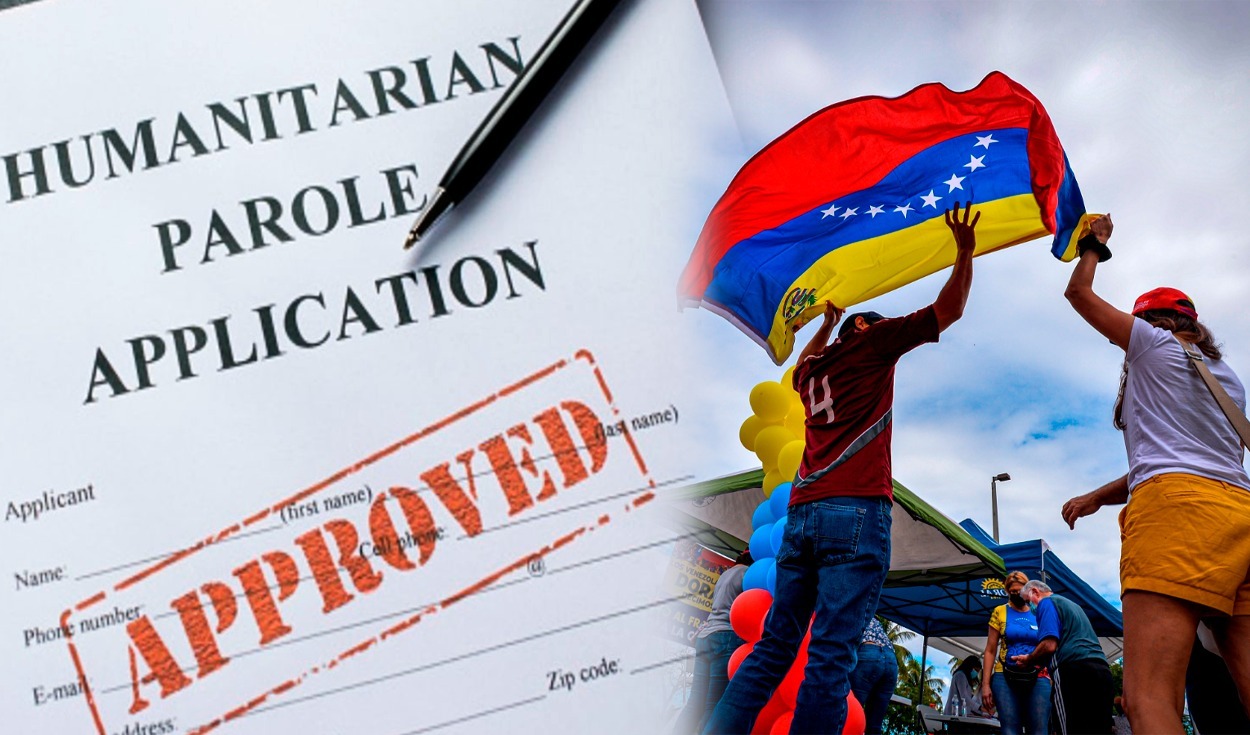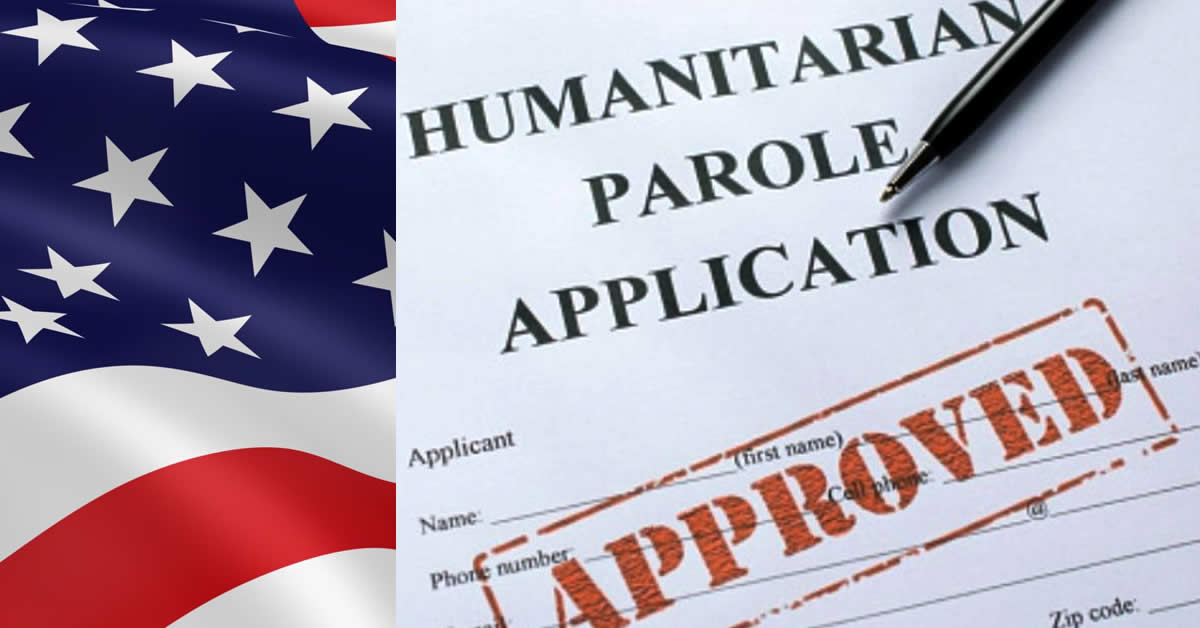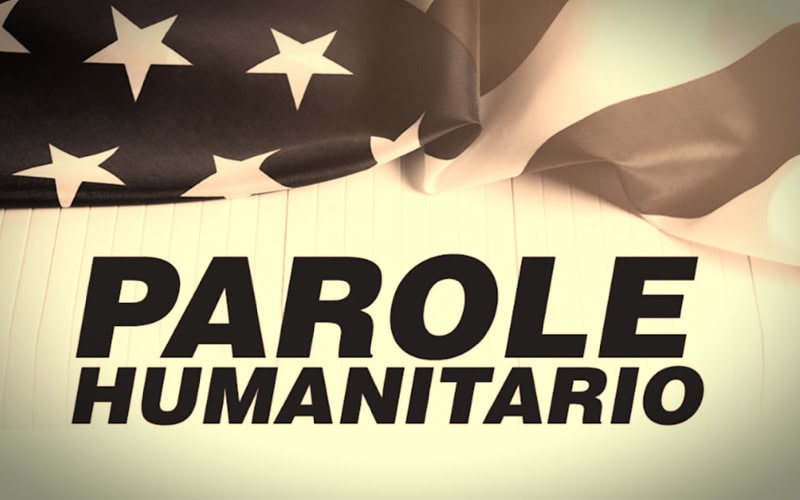Parole In The US: How To Apply & What You Need
Can a lifeline be thrown to those seeking refuge in the United States based on urgent humanitarian needs or significant public benefit? The U.S. immigration system offers the possibility of "parole," a temporary permission to enter the country, even without a visa, under specific circumstances. This article delves into the intricacies of this process, providing insights into eligibility, application procedures, and the evolving landscape of humanitarian parole programs.
Navigating the complexities of U.S. immigration law can feel like traversing a maze. For those seeking a temporary reprieve or a pathway to a better life, understanding the nuances of "parole" becomes crucial. This article serves as a guide, illuminating the pathways, the challenges, and the opportunities within the system. From understanding the different types of parole to navigating the application process, we aim to provide clarity and direction.
Consider the case of an individual who arrived in December 2022 under the humanitarian parole program. For a year, this person has been working as a producer at a media outlet in Washington. This individual's story is not unique; many others have sought similar pathways, but the landscape is ever-changing, subject to the ebb and flow of policy and legal challenges. Applying for a working visa and requesting asylum are other options pursued by this person, though the processes have been affected by political shifts.
| Category | Details |
|---|---|
| Name (Fictional) | Alex Rodriguez |
| Country of Origin | Venezuela |
| Arrival Date | December 2022 |
| Parole Program | Humanitarian Parole |
| Current Employment | Producer at a Media Outlet in Washington |
| Visa Applications | Working Visa application in progress |
| Asylum Application | Asylum request filed |
| Legal Status Challenges | Affected by policy changes under the Trump administration |
Reference: USCIS Official Website
The "parole humanitario" program, announced for Nicaragua in January 2023, allowed beneficiaries to arrive in the United States after the date required to qualify for Temporary Protected Status (TPS). It's worth noting that TPS provides temporary protection to eligible nationals of designated countries who are already in the United States and cannot safely return home due to conditions in their home country.
Reports of alleged revocation notices of parole to its beneficiaries have further complicated the situation. The programs benefits have extended to approximately 530,000 immigrants from four countries, allowing them to reside and work temporarily in the United States. Recent legal actions, such as a court order issued by Judge Talwani, have directed a halt to the revocation of legal protections and deportation notifications pending further judicial review. This order underscores the complexities and legal battles that surround humanitarian parole.
The "parole humanitario" program, initially established under the Biden administration, granted temporary protection and work permits for two years to beneficiaries from Cuba, Haiti, Nicaragua, and Venezuela. The official closure of the CHNV humanitarian parole program is scheduled for April 24, 2025, a date that looms large for many who have built lives in the U.S. under its protection.
More than 500,000 Cubans, Haitians, Nicaraguans, and Venezuelans have benefited from this humanitarian parole, enabling them to live and work temporarily in the United States. This program offered a crucial lifeline, particularly for those fleeing political instability, natural disasters, or other dire circumstances in their home countries. The program has allowed these individuals to contribute to the U.S. economy and society while seeking a more permanent legal status.
The U.S. government faces ongoing challenges as it navigates the complexities of immigration policy. The Department of Justice has presented an appeal to overturn the court order that blocked the mass cancellation of immigration permits granted under the Biden administration, specifically affecting over 500,000 individuals from Cuba, Haiti, Nicaragua, and Venezuela. This ongoing legal battle highlights the persistent tension between the needs of those seeking refuge and the government's policy priorities.
Under the Trump administration, the decision to end humanitarian parole granted to over 500,000 citizens of Venezuela, Cuba, Haiti, and Nicaragua was announced. This decision would affect those whose temporary status had not yet expired and ordered them to leave the United States before April 24, 2025. This highlights the fluctuations in policy and the impact they can have on the lives of those seeking refuge.
For individuals outside the United States, requesting temporary permission to stay based on urgent humanitarian reasons or significant public benefit is an option. The Department of Homeland Security (DHS) provides guidance on the documents required, eligibility criteria, and the overall process, including travel considerations. Meeting the eligibility requirements and providing sufficient evidence are crucial steps in this process.
With over 530,000 beneficiaries of humanitarian parole maintaining their legal status and work permits in the United States, avoiding deportation scheduled for April 24th, the legal and political landscape remains in flux. This means that the courts and the administration are still grappling with the long-term implications of parole and the legal rights of the individuals who benefit from it.
The DHS announced the end of parole programs in the Federal Register, a move that could have a significant impact on those who are currently in the United States under these programs. This includes the CHNV programs.
The U.S. government's approach to humanitarian parole continues to be a focal point of legal and political debate. Despite legal challenges, the government is pushing ahead with its plans, as evidenced by the Department of Justice's ongoing appeal. This underscores the complexities of balancing security concerns with humanitarian obligations.
The U.S. Citizenship and Immigration Services (USCIS) defines humanitarian parole as a temporary permission granted for a limited period to fulfill the purpose for which it was granted, generally not exceeding one year. This temporary status is not a guarantee of permanent residency, but it provides a pathway for individuals to reside and work in the U.S. under specific circumstances.
The Venezuelan humanitarian parole is a temporary permit granted based on urgent humanitarian reasons or significant public benefit in the United States. It offers a lifeline to those fleeing difficult circumstances in their home country. The Venezuelan parole program highlights the specific focus on providing assistance to individuals from a country in crisis.
USCIS removed the humanitarian parole page because the information has become outdated. This is common due to policy shifts and updates in immigration laws, reflecting the dynamic nature of the immigration system. It is essential to stay informed about current regulations and official sources for the latest information.
This decision is part of a series of executive orders signed by Donald Trump at the beginning of his second term, which seek to toughen immigration policies, including the elimination of humanitarian parole. The interplay of executive orders and legal challenges underscores the political complexities of U.S. immigration policy.
On March 21, the Department of Homeland Security (DHS) published a notice in the Federal Register announcing the end of humanitarian parole programs for Cuba, Haiti, Nicaragua, and Venezuela (CHNV). This move would impact approximately 532,000 people who entered under this initiative.
However, not all of those affected will necessarily be subject to deportation. Legal challenges and individual circumstances can play a significant role in determining the outcome of these cases. Legal representatives are working to assist individuals in exploring their legal options and protect their rights.
In the midst of uncertainty, a court hearing was held, marking the first lawsuit against the Trump administration related to the humanitarian parole program. This lawsuit focused on the cancellation of the program and its impact on the beneficiaries. This hearing, held in Boston, reflects the ongoing legal challenges.
The humanitarian parole is a temporary permission that allows a person to immigrate legally to live and work in the United States for a period of up to two years. During this time, they could seek options to extend their stay under some other previously established immigration status. This also underscores the importance of understanding the available options and planning for the future.
Among the benefits of humanitarian parole were the work permit, social security number (SSN), and access to benefits from the Special Supplemental Nutrition Program for Women, Infants, and Children (WIC) and the Supplemental Nutrition Assistance Program (SNAP), commonly known as the program of.
Humanitarian parole offers a vital lifeline for individuals needing medical treatment, seeking to reunite with family members, or facing a risk of harm in their country of origin. It is a crucial tool for addressing urgent needs and preventing human suffering. It also provides a pathway for those who have been previously deported and wish to return to the United States.
The announcement of humanitarian parole for Nicaragua in January 2023 allowed beneficiaries to arrive in the United States after the date required to qualify for TPS. This indicates the complexity of immigration laws and the different paths that can be used to come to the U.S., depending on circumstances.
Nicaraguans could also be eligible for asylum, depending on the specific circumstances of their case. The asylum process provides protection for individuals who face persecution in their home country. Seeking asylum requires meeting specific criteria and presenting a compelling case.
Fraud scandals within the humanitarian parole program have led to criticism from U.S. lawmakers, raising questions about the integrity of the program and the need for oversight. Addressing these concerns is crucial to maintaining public trust and ensuring the program's effectiveness.
Despite the challenges, the CHNV program remains a beacon of hope for many, offering a chance at a better life. Navigating the complexities of immigration law and the political and administrative storms that it faces highlights the importance of perseverance and understanding. The program's future depends on its ability to navigate these issues.
The decision of President Donald Trump to end the humanitarian parole program for Venezuelans, Cubans, Nicaraguans, and Haitians has created uncertainty among thousands of migrants. Understanding their rights and seeking legal advice are vital for those affected by these policy changes.
This program, initially implemented by the Biden administration, offered temporary protection and work permits for two years. Now, the beneficiaries face an uncertain future, with the need to explore alternatives to legal status. Legal support and staying informed about their rights are key.
The U.S. immigration system is currently experiencing a high volume of parole requests. This has led to processing delays. Petitioners should be aware of this and be prepared for longer waiting times.
The processing times for parole requests are expected to take time as immigration officials work through the large number of applications received since the fall of 2021. This situation highlights the need for patience and perseverance.
There are eight types of parole in the United States that can allow legal entry. Exploring all the options and seeking guidance from legal experts are important. It is crucial to research all the available options to find the one that best suits your immigration needs.
| Type of Parole | Description | Eligibility |
|---|---|---|
| Humanitarian Parole | Granted to individuals for urgent humanitarian reasons or a significant public benefit. | Individuals facing dire circumstances or those whose entry would benefit the U.S. |
| Medical Parole | Allows entry for individuals needing urgent medical treatment. | Individuals who cannot obtain necessary medical care in their home country. |
| Family Reunification Parole | Allows family members to reunite with their relatives in the U.S. | Family members seeking to join their relatives in the U.S., often when other visa options are unavailable. |
| Parole for Witnesses and Informants | Granted to individuals who can assist with investigations or legal proceedings. | Individuals who can provide valuable information to law enforcement agencies. |
| Public Interest Parole | Granted when entry is in the public interest, such as for national security purposes. | Individuals whose presence would benefit the United States. |
| Parole for Special Circumstances | Granted in unique situations not covered by other parole categories. | Individuals with specific needs or circumstances that warrant parole. |
| Deferred Action | Allows the government to temporarily not take action against an individual. | Individuals who meet specific criteria, such as those covered by DACA (Deferred Action for Childhood Arrivals). |
| Parole in Place | Allows certain family members of U.S. military personnel to remain in the U.S. | Spouses, parents, and children of U.S. military members who are in the U.S. without inspection. |
Remember to consult with qualified legal professionals to help you understand the best options for your unique situation.


